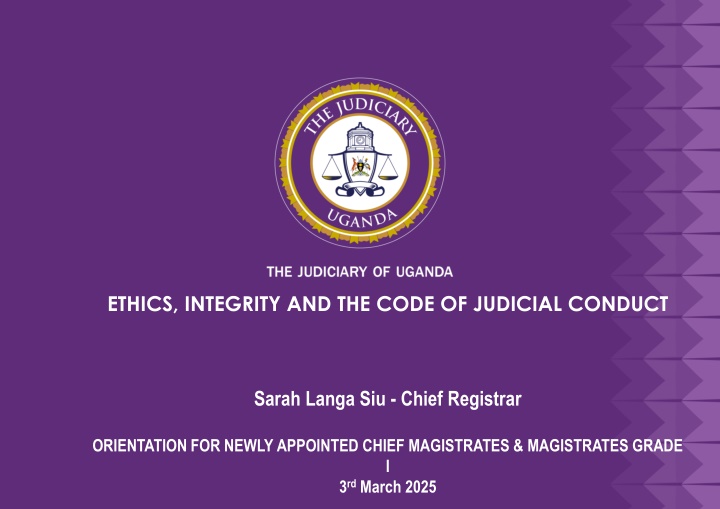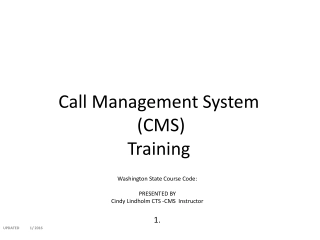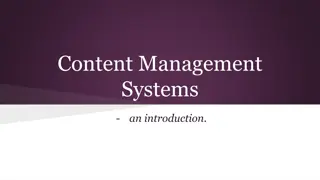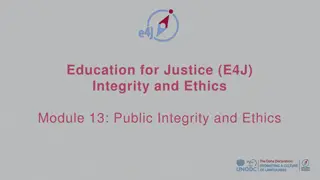
Ethics, Integrity, and the Judicial Code of Conduct
Explore the significance of ethics and integrity in judicial conduct, reflecting on their definitions, importance, and the governing laws. Discover how judges maintain impartiality, independence, and trust through ethical standards and accountability.
Download Presentation

Please find below an Image/Link to download the presentation.
The content on the website is provided AS IS for your information and personal use only. It may not be sold, licensed, or shared on other websites without obtaining consent from the author. If you encounter any issues during the download, it is possible that the publisher has removed the file from their server.
You are allowed to download the files provided on this website for personal or commercial use, subject to the condition that they are used lawfully. All files are the property of their respective owners.
The content on the website is provided AS IS for your information and personal use only. It may not be sold, licensed, or shared on other websites without obtaining consent from the author.
E N D
Presentation Transcript
ETHICS, INTEGRITY AND THE CODE OF JUDICIAL CONDUCT Sarah Langa Siu - Chief Registrar ORIENTATION FOR NEWLY APPOINTED CHIEF MAGISTRATES & MAGISTRATES GRADE I 3rdMarch 2025
FOCUS OF THE PRESENTATION FOCUS OF THE PRESENTATION 1) Definition & Importance of Ethics/Integrity 2) Governing Laws and Code 3) Examples of what not to do while in Judiciary service 4) Conclusion 2
UNDERSTAND THE CONCEPTS Ethics refer to a set of principles and values that govern an individual's behaviour and decision-making. On the other hand, integrity means adhering to these principles and values even when no one is watching. Integrity is the quality of being honest and having strong moral principles and doing the right thing. Ethics is more external (rules, regulations, code of conduct), whereas integrity is more internal (the individuals decide whether they will uphold the ethics of an organisation). 3
Ethics is not a choice while integrity is a personal choice. Ethics can be imposed on someone, while integrity cannot. An individual decides each day whether to act with integrity and do the right thing or not. 4
The term Ethics is defined as moral norms or standards of professional conduct - Blacks Law Dictionary 9th Edition Judicial ethics consists of the standards and norms that bear on judges and covers such matters as how to maintain independence, impartiality and avoid impropriety. The Judiciary cannot exist without the trust and confidence of the people. Judges must therefore be accountable to the people to whom they owe their allegiance through observing the legal and ethical standards . 7
THE CONTITUTION Objective XXVI under the National objectives and directives principle of state policy on Accountability provides that power belongs to the people and all public offices shall be held in trust for the people and Public officers shall be answerable to the people. Article 126(1) Exercise of Judicial power; Judicial power is derived from the people and shall be exercised by Courts in the name of the people and in conformity with law and with the values, norms and aspirations of the people Article 126(2) Justice shall be impartial, shall not delayed, and shall be administered without undue regard to technicalities. 8
THE OATH! ARTICLE 149 & FOURTH SCHEDULE TO OATHS ACT To To exercise judicial functions exercise judicial functions and to do right to all people and to do right to all people without fear or without fear or favour favour, , affection or ill will affection or ill will 9
THE JUDICIAL SERVICE ACT & REGULATIONS Section 28 of the Judicial service Act , gives power to the JSC to make regulations providing for the organisation of the work of the Commission and regulating the manner in which it shall exercise its functions. Regulation 23 of The Judicial Service Commission Regulations, S.I 87/2005 , provides for judicial offences which when committed amount to violation of the judicial ethics, integrity and the Code of Judicial Conduct. 10
THE UGANDA CODE OF JUDICIAL CONDUCT The Uganda Code of Judicial Conduct lays down principles and rules designed to provide guidance for regulating judicial conduct. The Uganda Code of Judicial Conduct recognises the fact that Courts of Judicature were established by the Constitution to exercise power in the name of the people of Uganda in conformity with the law and with values, norms ad aspirations of the people, and are enjoined to administer substantive justice impartially and expeditiously. 11
ETHICAL PRINCIPLES FOR JUDGES Ethical Principles/standards for judicial officers are laid out in the Uganda Code of Judicial Conduct These principles are- Independence Independence Impartiality Impartiality Integrity Integrity Propriety Propriety Equality Equality Competence Competence and and Diligence Diligence 12
JUDICIAL MISCONDUCT Judicial misconduct under Regulation 23 of the Judicial Service Commission Regulations S.I 87/2005 Unjustified delay is adjudicating and disposing off Court matters- Judiciary Clients Charter Misuse of office - Taking advantage of the prestige of a judicial office to advance his or her the private interests or for others Abuse of contempt power( Ekau vs- Dr. Ruth Aceng, the Minister of Health and A.G Misc Appln. No. 746 of 2018 13
Failure to exhibit judicialtemperament - A Judge should be courteous, dignified, and patient so as to gain confidence of litigants, witnesses, lawyers, court staff, court officials and others with whom the judge deals in an official capacity. Failure to discharge administrative responsibilities competently and diligently without bias or prejudice Misuse of Court resources - The use of Court premises, staff, stationery, equipment, or other resources, for extra-judicial activities Involvement in memberships/organizations discrimination on the basis of race, sex, religion, national origin or ethnicity that practice 14
JUDICIAL MISCONDUCT Insubordination, rude, abusive and disrespectful behaviour Lack of integrity in public and private transactions Divulging information to unauthorised persons Involvement in financial/ business dealings which may interfere with proper performance of judicial duties and affect the impartiality of a judge Failure to balance extra judicial activities vis-a-vis judicial work/ responsibilities Bias, favouritism, nepotism for personal gain or that of another person Corruption and Bribery 15
Aside the Laws, even the Bible speaks against Bribery! Deuteronomy 16:19; you shall not pervert justice, show partiality nor take a bribe. 16
WHY ETHICS & INTEGRITY IN THE JUDICIARY? Builds Trust: Ethics and integrity are critical in building trust with employees, court users and stakeholders. When we adhere to a strong code of ethics, we demonstrate our commitment to honesty, fairness, and transparency, which in turn builds trust and credibility. Enhances Reputation: A Judiciary with a reputation for ethical conduct and integrity is more likely to better spoken of than not. (Perception Indices exist to suggest we are not the most popular institution). 17
Mitigates Risk: Unethical behaviour can lead to legal risks such as charges being preferred against a Judicial Officer or disciplinary action being taken against them, such as interdiction, dismissal, suspension, etc Improves Employee Morale: A culture of ethics and integrity can also improve employee morale and engagement. When employees feel that their workplace operates with fairness and transparency, they are more likely to be motivated and productive. Encourages Responsible Behavior: Prioritizing ethics and integrity in the workplace can also encourage responsible behaviour among employees. When employees know that their actions are being monitored and that ethical conduct is valued, they are more likely to act responsibly and make decisions that align with the values of the business. 18
IMPORTANCE OF UPHOLDING JUDICIAL ETHICS Competence - Guides the judge in the independent exercise of Judicial duties Guides the judge on how to ensure impartiality and avoid impropriety in the dispensation of justice Gaining public confidence Employers value these qualities because they build trust, foster teamwork, and promote a positive work culture. 19
A MAN WITHOUT ETHICS IS A A MAN WITHOUT ETHICS IS A WILD BEAST LOOSED UPON THIS WILD BEAST LOOSED UPON THIS WORLD WORLD Albert Camus 20






















